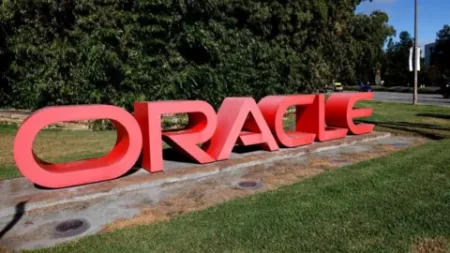In a landmark development for web content creators, Cloudflare, an internet infrastructure firm that supports approximately one-fifth of all internet traffic, is launching a cutting-edge AI bot blocker. This initiative is particularly significant for millions of websites, including high-profile platforms like Sky News, The Associated Press, and Buzzfeed. The new technology aims to prevent artificial intelligence (AI) bots from scraping content without obtaining permission from creators, which has become a pressing concern in the digital age.
With the prevalence of AI systems leveraging copyrighted material for their training—often without proper compensation or consent—this move marks a response to widespread grievances among writers, musicians, artists, and other content creators. The issue has escalated to the extent that in the UK, it has ignited notable disputes involving government and prominent figures like Sir Elton John, all advocating for more robust copyright protections. Cloudflare’s innovative solution empowers content creators with the ability to either block harmful crawlers or potentially request payment from AI companies for accessing their work.
The technology devised by Cloudflare specifically targets AI crawlers, programs designed to explore the web, collect data, and index content for use in training AI models. These crawlers have gained notoriety for undermining traditional agreements between publishers and bots that index content—such as Google’s search engine crawlers—that drive traffic and readership. As of now, Cloudflare reports that this technology is active on around a million websites, revealing a strong interest among publishers in protecting their material.
Roger Lynch, CEO of Condé Nast, which oversees publications such as Vogue and The New Yorker, expressed that this development is a “game-changer” for the publishing sector. He noted that it represents a crucial step towards establishing a fair value exchange on the internet, which not only protects creators but also bolsters quality journalism while ensuring AI companies are held accountable for their activities. Nevertheless, experts caution that while this system is a positive step forward, striving for enhanced legal protection remains essential for a comprehensive solution.
The initial implementation phase of the AI bot blocker will take effect automatically for new Cloudflare users and for existing sites that have participated in prior efforts to restrict crawlers. A widely shared concern among publishers is the unauthorized use of their content by AI firms. A notable example includes a recent legal threat from the BBC directed at the U.S.-based AI company Perplexity, demanding cessation of BBC content use alongside claims for compensation.
Despite the desire for protection from unauthorized AI crawlers, publishers remain wary of entirely blocking access to search engine crawlers, as these not only index but redirect traffic to the original content, benefiting publishers by increasing visibility and potential revenue. Perplexity has accused the BBC of attempting to shield Google’s monopoly in web search, while Cloudflare contends that AI crawlers breach the established understanding by not adequately directing traffic back to original content sources, ultimately depriving creators of necessary revenue streams.
Matthew Prince, Cloudflare’s CEO, argues that to enable the internet to thrive in the evolving landscape of AI, it’s crucial to grant publishers the control they require over their content. He advocates for a transformative model, offering developers a “Pay Per Crawl” payment option that allows content creators the choice to monetize their material when accessed by AI companies.
In light of increasing AI crawler activity—Cloudflare noted that AI bots generate upwards of 50 billion requests to their network daily—new efforts are taking shape to combat irresponsible practices among certain AI firms. These vulnerabilities have prompted Cloudflare to previously devise a system to redirect troublesome crawlers into a “Labyrinth” of non-valuable web pages.
The legislative landscape surrounding copyright protections for content creators, particularly regarding AI, is contentious, with ongoing discussions in both the UK and US over policies that would safeguard creative rights. Content creators and licensors are escalating legal actions to challenge perceived encroachments, underscoring the urgency of the dialogue on protecting intellectual property rights in the realm of artificial intelligence.
While Cloudflare’s AI bot blocker is an encouraging advancement for content protection, experts like Ed Newton-Rex, founder of Fairly Trained, underline that systemic change is vital. He argues that relying solely on one company for robust protection is insufficient—what is needed is comprehensive legal reform that genuinely addresses and safeguards creators’ rights from AI exploitation. For now, Cloudflare’s initiative may enhance protections in specific contexts, yet protecting content comprehensively will necessitate a collective movement involving policy reform and legal safeguards.











